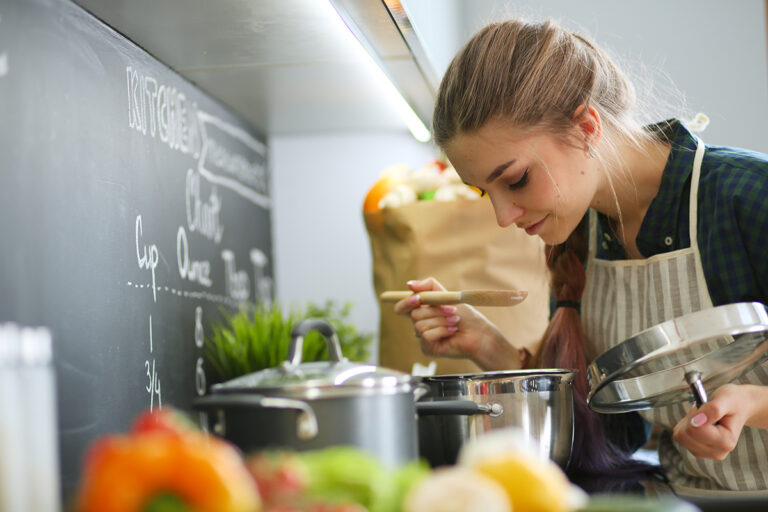
When it comes to home-cooked meals, there’s nothing better than ones that taste great and leave you feeling satisfied and energized after you eat them.
While some people claim that they can’t cook well at all, the truth is that they are probably just making simple mistakes that detract from the flavor of their meals and make them harder to digest.
For anyone who wants to significantly improve the quality of their cooking, these 10 tips will help you create more delicious meals than ever before.
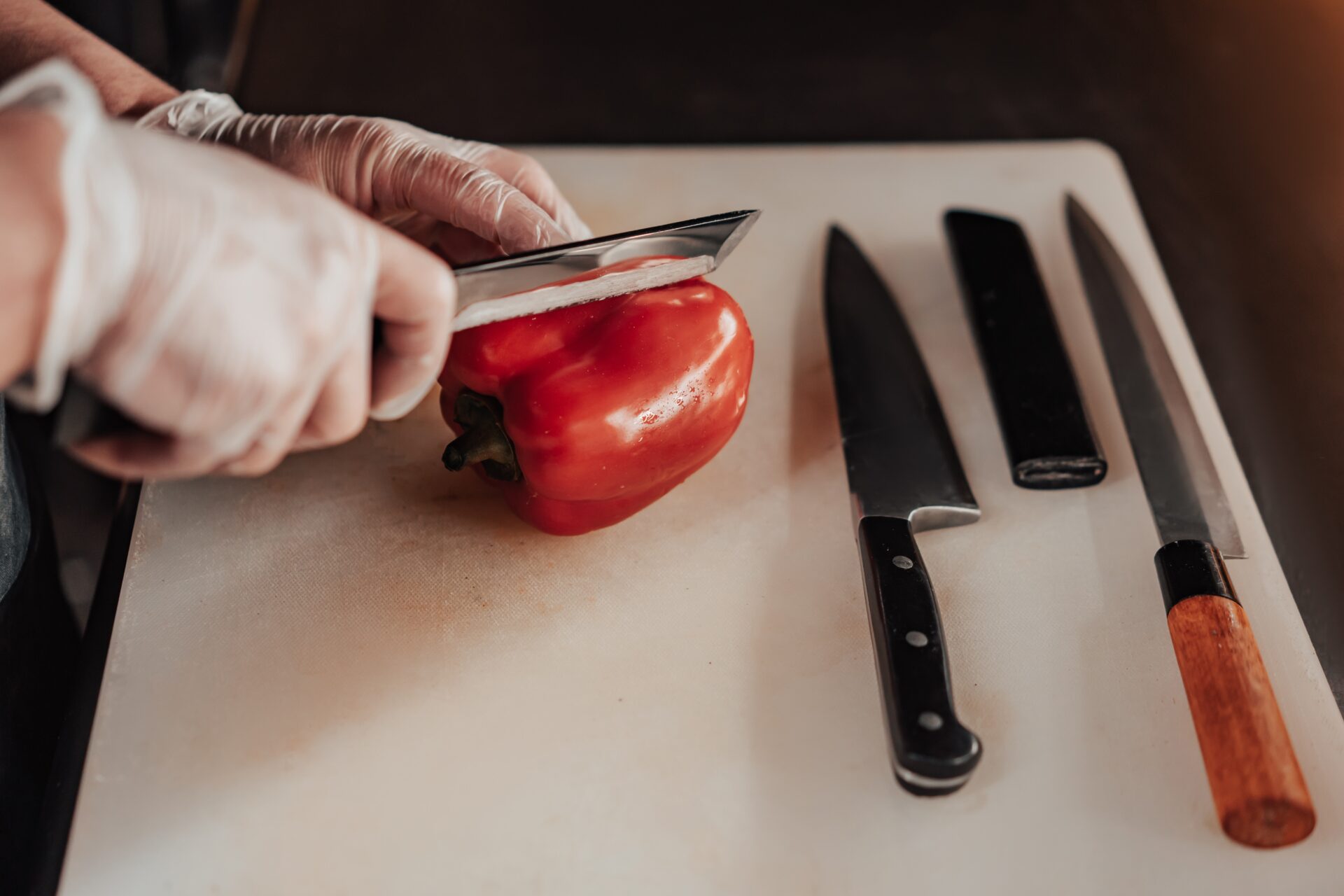
1) Don’t Buy Cheap Knives
Quality of your cooking will depend on three things; quality of your ingredients, cookware and tools. Cheap knives aren’t just a false economy but also can be incredibly dangerous.
After all you are attempting to prepare food for human consumption. It is worth spending more money on good quality knives and cookware that can last a lifetime.
A medium range set of chef’s knives will last you years and be useful in most areas of domestic cooking as well as being an investment in your own professional future if you intend to continue into a career as a professional chef.
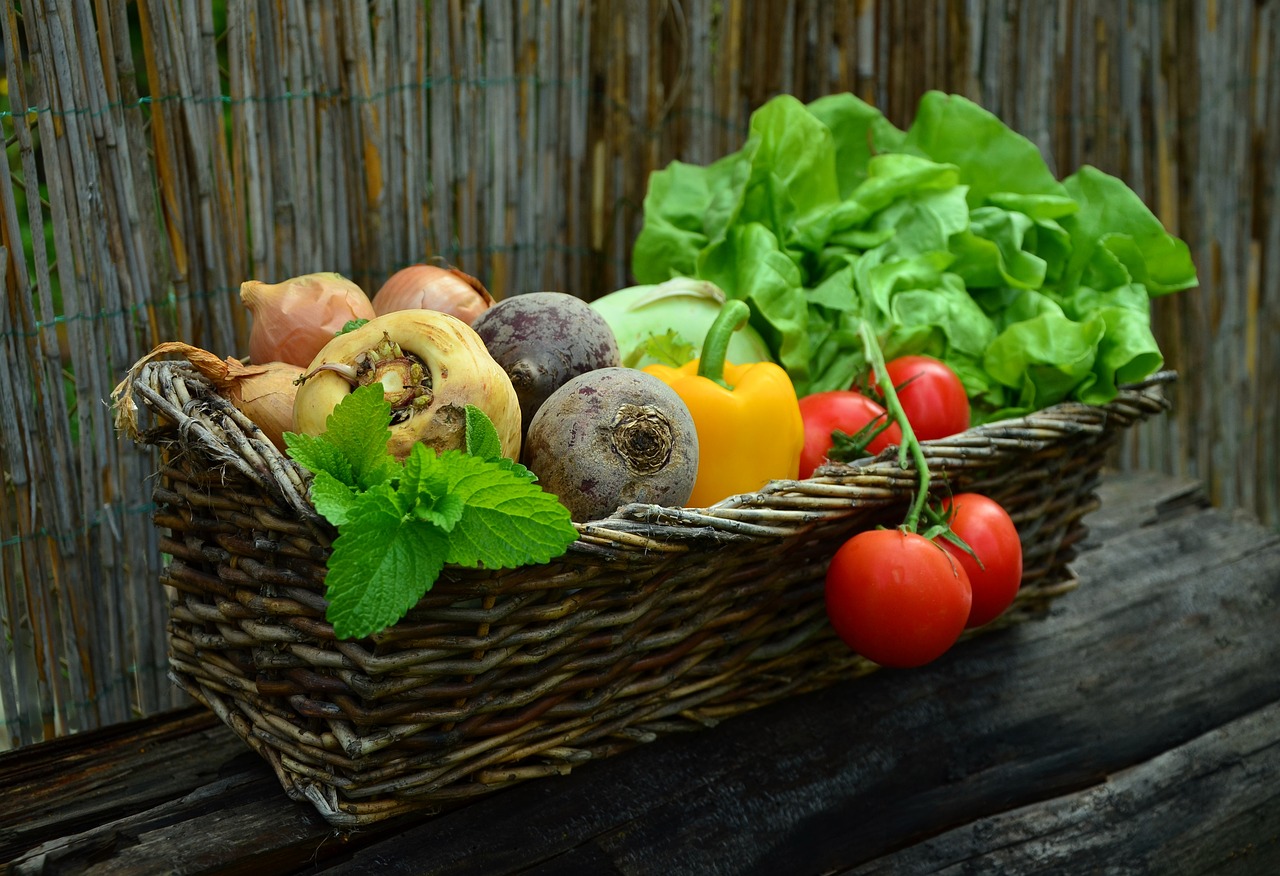
2) Use Fresh Ingredients
Fresh ingredients help tremendously when it comes to making food taste great. Getting a couple of fresh lemons to add a light, bright flavor or slicing some fresh basil and adding it to your dish can make all of the difference.
When you’re picking out fresh ingredients, try to avoid anything with additives that you can’t pronounce. If there are words on an ingredient list that don’t fit with what you’re making (i.e: if all your recipes call for white onion but something else is labeled onion), then it might be best to pick something else. To improve quality of your cooking, always use high-quality ingredients—they won’t fail you!
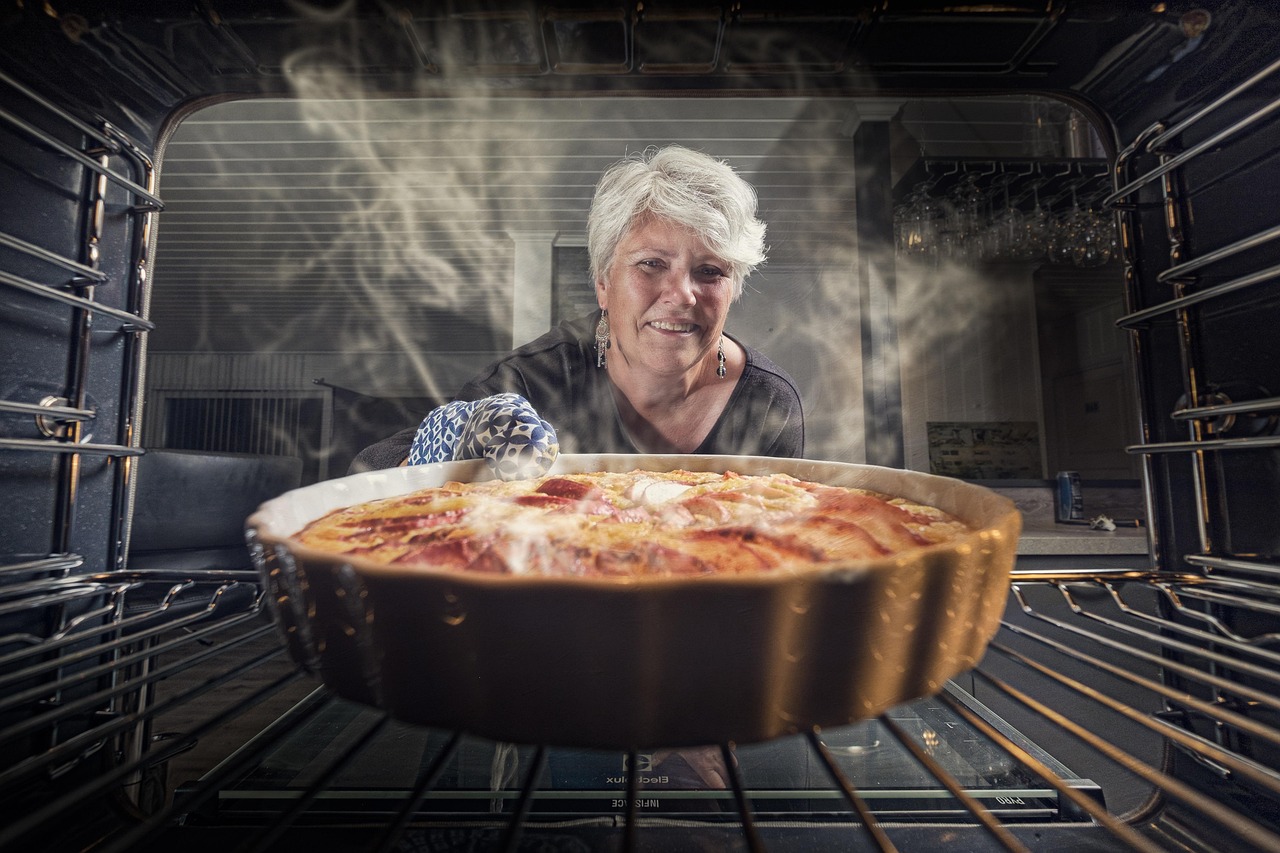
3) Practice Patience
No matter what your cooking skill level, patience is an essential part of successful meal preparation. If you rush through your cooking, it’s easy to make mistakes that compromise taste and food safety.
It might take longer than expected to get meals on the table, but if you slow down a bit and pay attention to what you’re doing, you can reduce kitchen stress—and end up with better food.
Practice patience with each step of your recipe prep. Whether it’s waiting for ingredients to cool or for grease in a pan to heat up before frying, give yourself enough time in between steps so that every step is carried out safely and well.
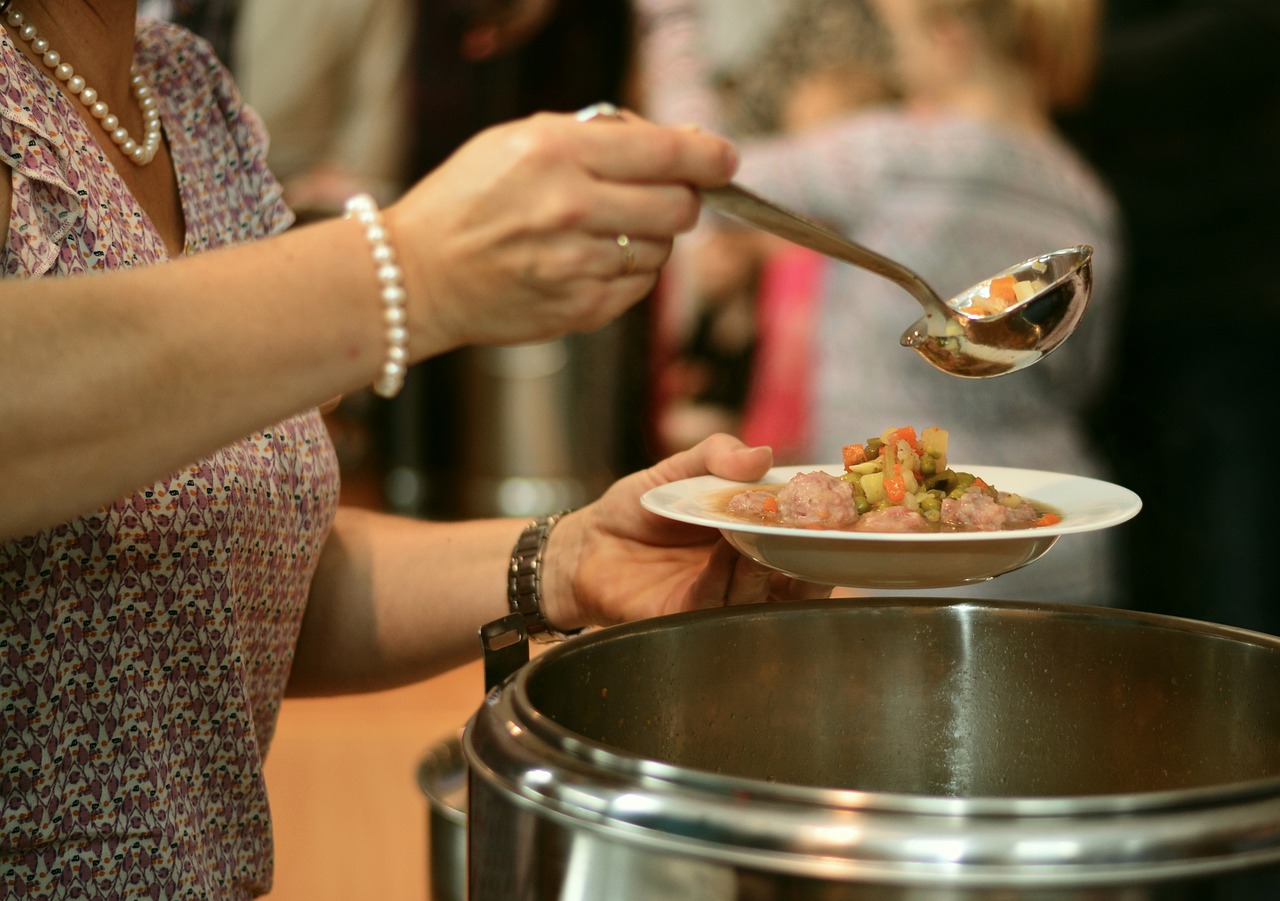
4) Follow Instructions
The quality of your cooking doesn’t depend on one single factor; it depends on several interrelated factors. Here in this article, are 10 ways to significantly improve that quality, from equipment you need to basic culinary principles.
As you learn how to make everything in your kitchen taste better, take a moment to appreciate exactly how far you’ve come!
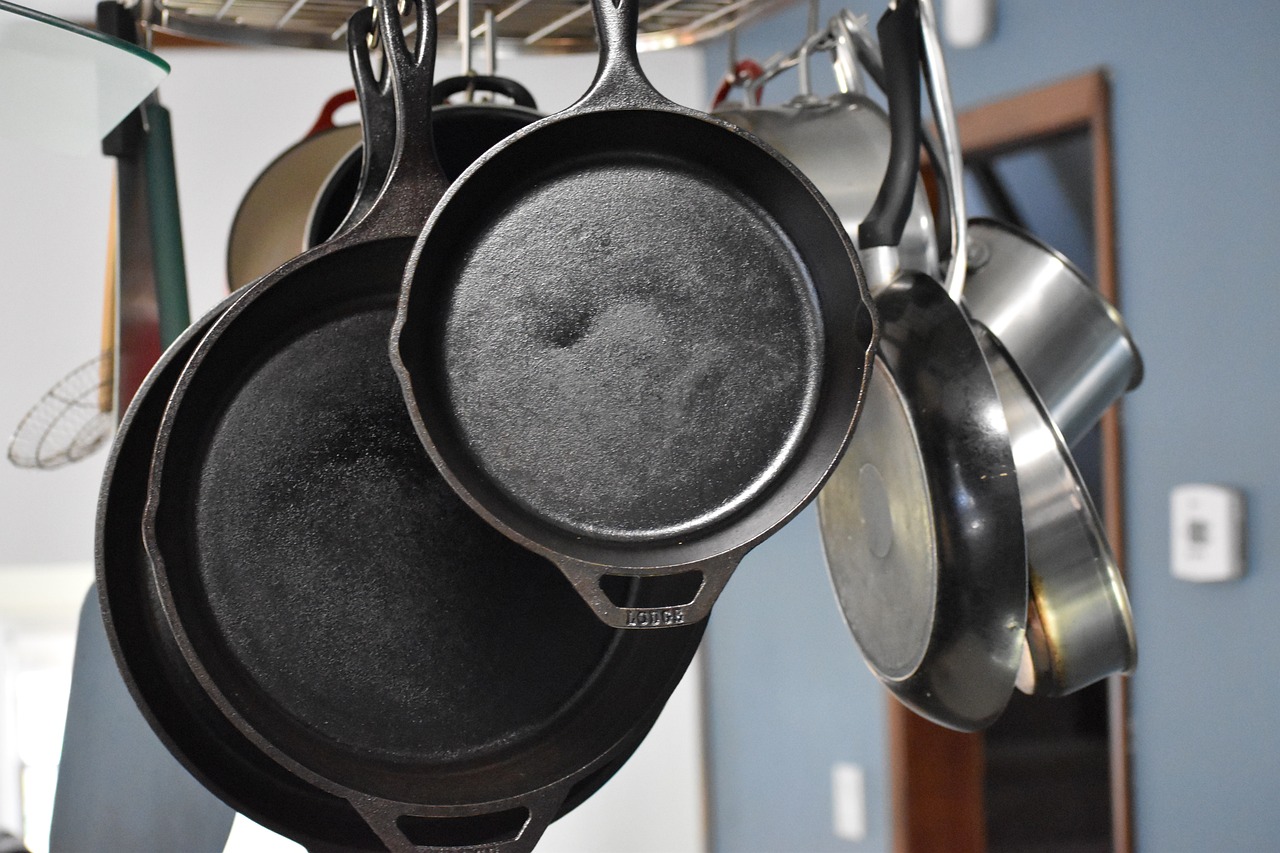
5) Buy Good Cooking Equipment
The right cooking equipment can make a world of difference in your kitchen. A good set of pots and pans, for example, will save you time (they heat up faster), energy (they conduct heat more efficiently), and cleanup efforts (they’re easier to clean).
Take care when shopping for cooking tools: Good pieces won’t break your budget—and you’ll be using them regularly! Here are a few items to look for when buying: Cast iron skillets; Hard anodized aluminum skillets; Stainless steel sauté pans with lids; Nonstick saucepans with lids; Nonstick skillet set with handles. Wooden spoons or silicone spatulas to mix and scrape.
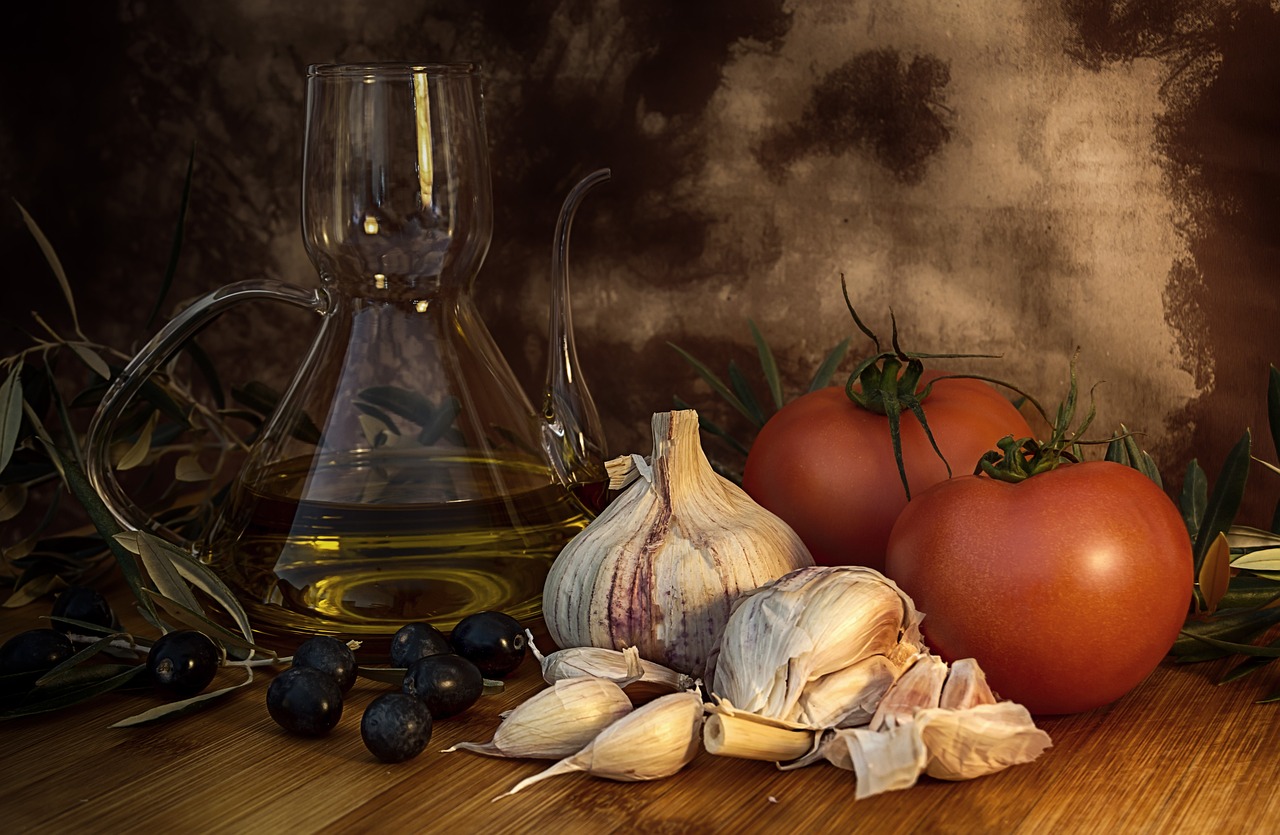
6) Sauté In Olive Oil
Olive oil is a healthy fat that’s often cheaper than canola oil. Using olive oil for sautéing foods and searing meats, as well as using it in homemade salad dressings, can improve the quality of your cooking.
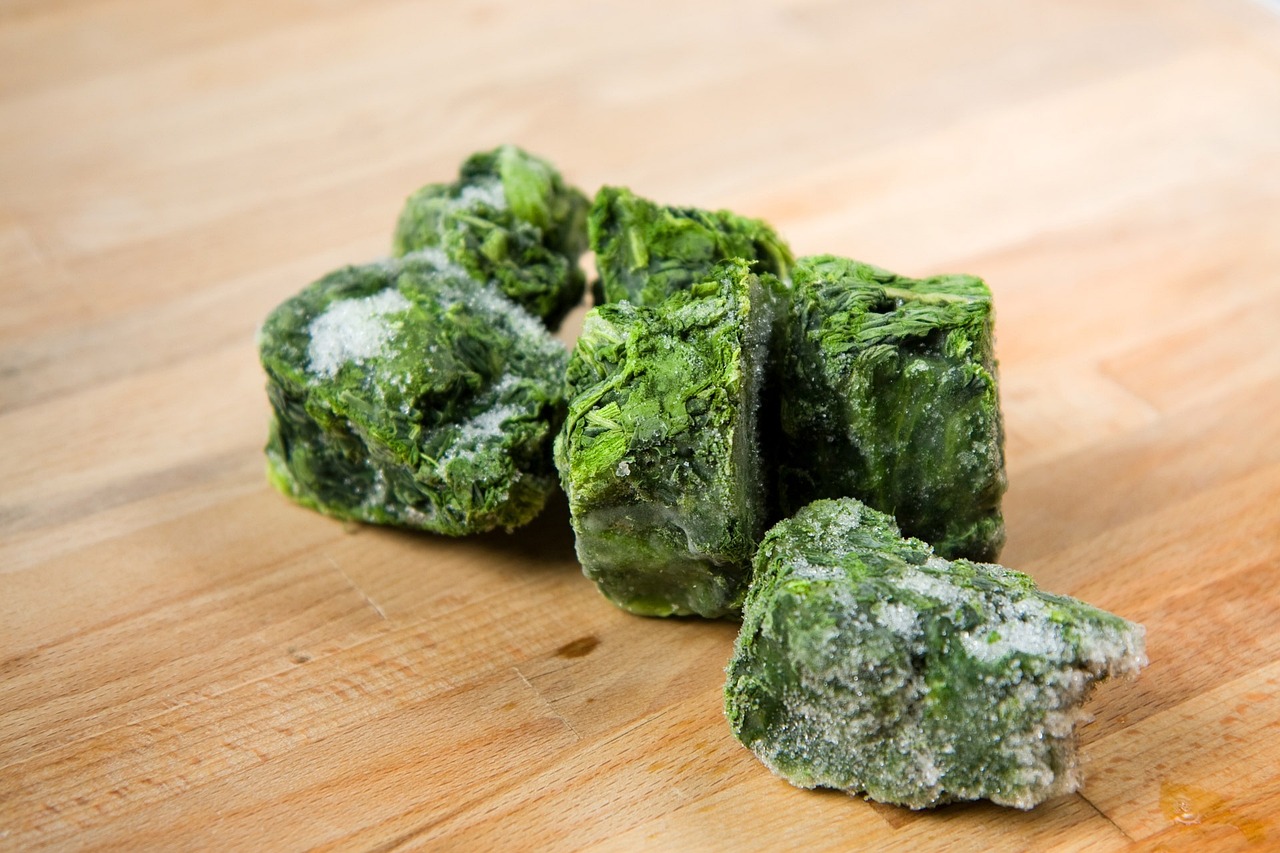
7) Avoid Frozen Foods
Frozen foods are convenient, but they’re also typically loaded with extra sodium and fat. Instead of picking up pre-made frozen meals, spend an hour or two in your kitchen preparing a meal using fresh ingredients you buy at a farmer’s market or grocery store.
Not only will you be able to control how much sodium goes into your dish, but you can also prepare all of your ingredients beforehand so that there is minimal clean-up required once dinner is finished.
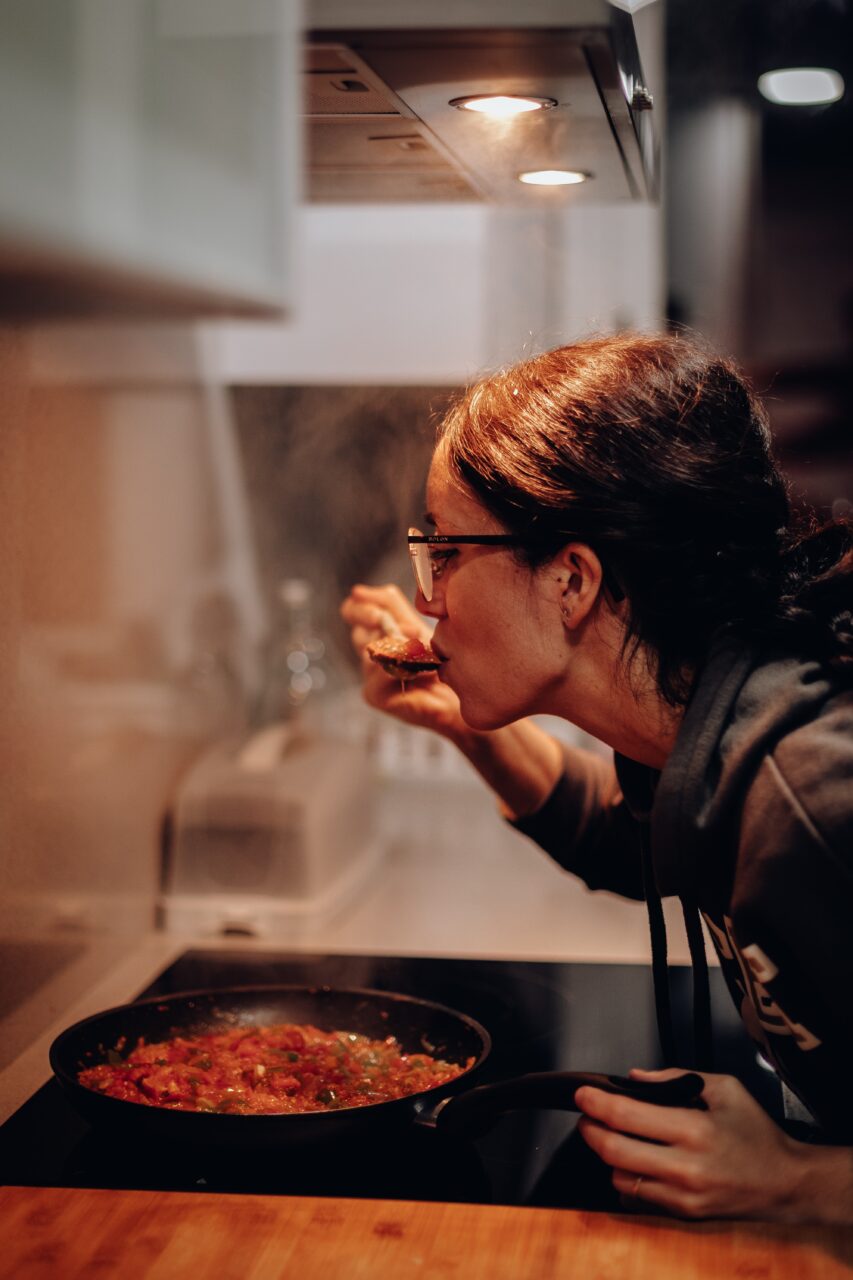
8) Taste Your Food As You Cook It
It’s an underrated but essential cooking skill. When you taste as you go, you can immediately identify any spices or seasonings that need to be adjusted.
You can also ensure that your dish tastes good before it is overcooked—which is particularly important if you like to cook on high heat!
Taste as you go when frying meats or vegetables, too. Just be sure not to eat so much in one sitting that it interferes with your weight loss goals! (Instead, use your perfect plate method to help control portions).
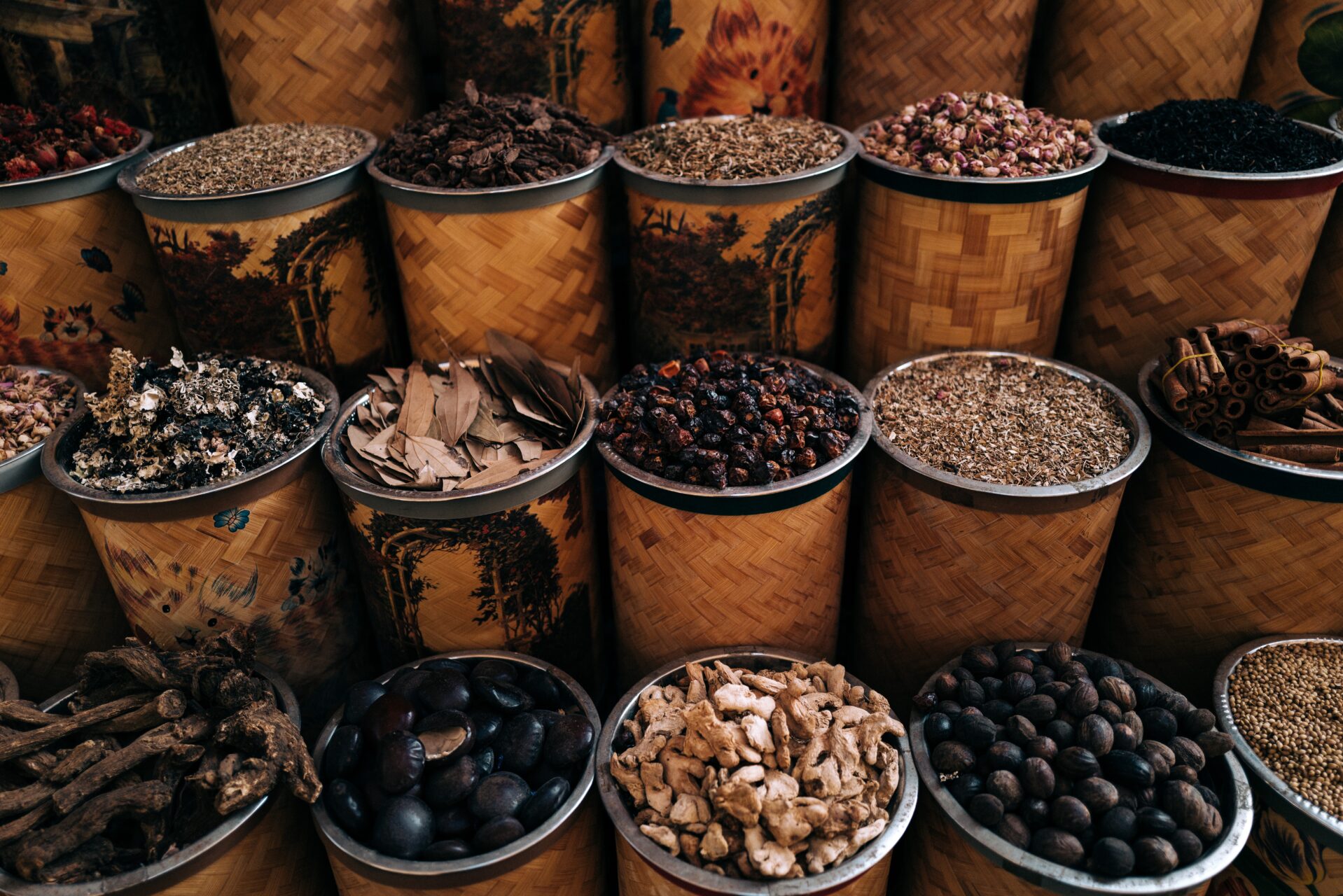
9) Don’t Be Afraid To Use Spices And Herbs
Spices and herbs will significantly improve the quality of your cooking without adding a lot of calories or unnecessary fat.
People think that only Asian food contains spices, but a delicious stir-fry or pasta sauce need not be bland. Garlic is probably one of most versatile and healthiest spices available, as it adds flavor while also keeping blood pressure in check.
Seek out new flavors to keep your meals exciting, and try things like ginger with beef dishes or rosemary with salmon. Start small with 1/4 tsp (teaspoon) of ground cinnamon in your morning coffee or cayenne pepper on scrambled eggs for breakfast; you’ll have fun experimenting and never cook plain again!
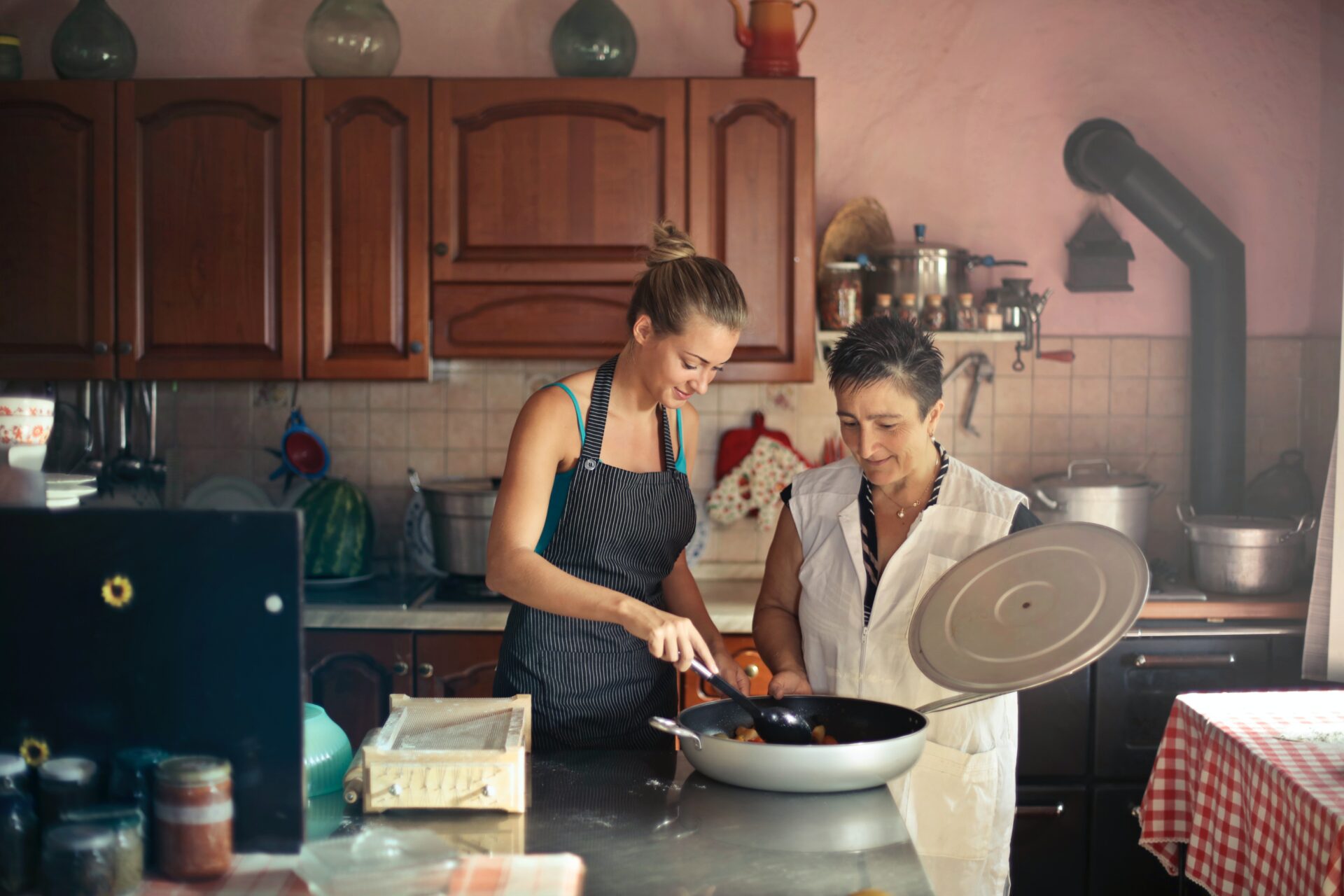
10) Patience, Practice, Practice!
Patience is “Key” to improving. If you try a new cooking technique once and it doesn’t work out, that’s ok! It may take multiple tries to get it just right.
Also, if you mess up your first attempt at using a new spice or seasoning, try adding even more next time. Maybe even go outside of your usual recipes and try something entirely new. The amount of practice required for significantly improving the quality of your cooking is really up to you!
But do know that getting there will be well worth it!
Final Remarks
To improve your cooking, you don’t need to attend culinary school. Every time you cook, there are a ton of quick, simple things you can do to produce better, more polished outcomes. The list above contains our top ten suggestions for enhancing your cooking instincts.